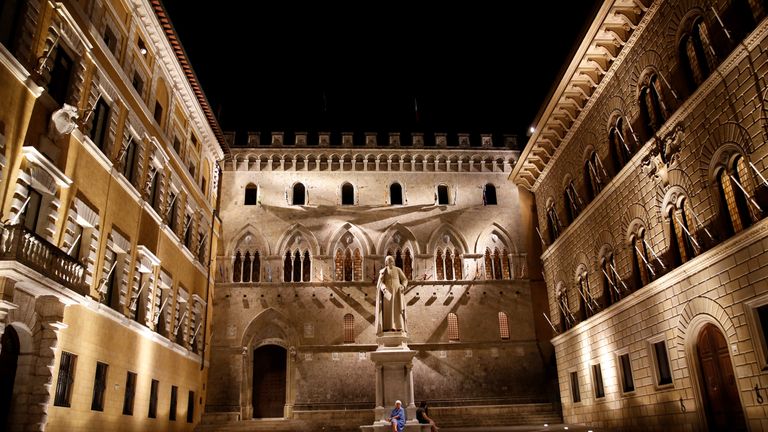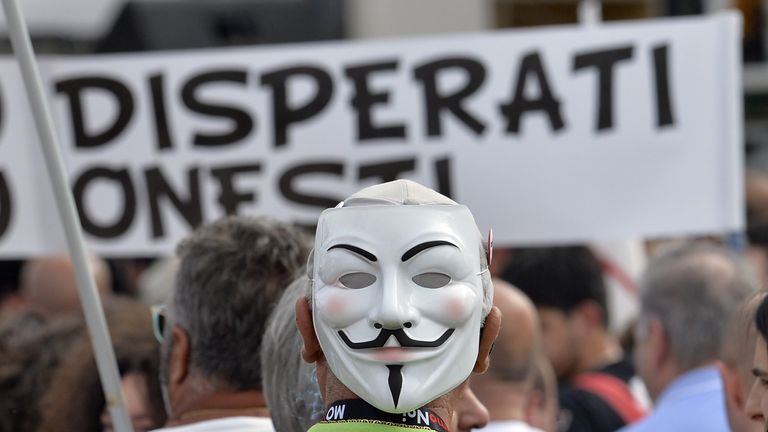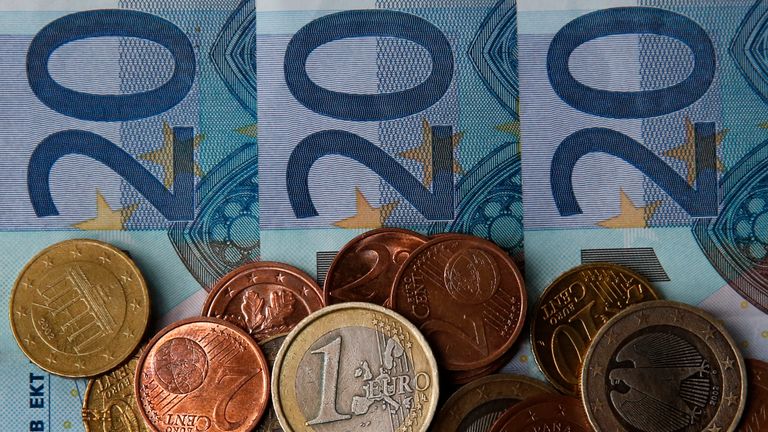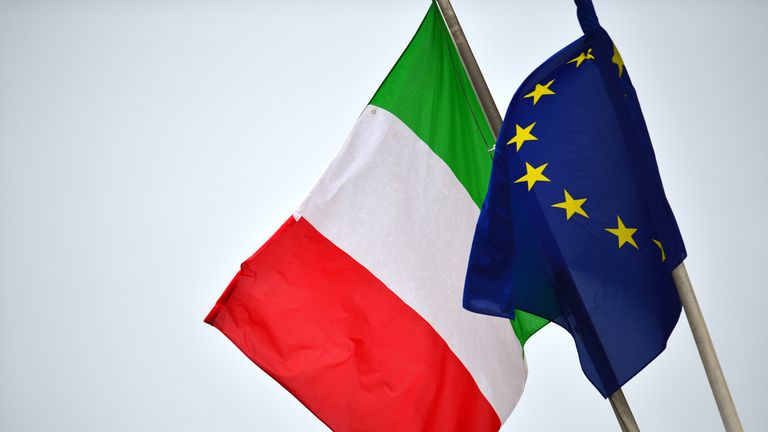Italy referendum result could hit country's fragile banks
The precarious state of Italy's banks come into sharp focus after the 'No' vote, with knock-on effects for the rest of Europe.
Monday 5 December 2016 02:06, UK
The defeat and departure of Prime Minister Matteo Renzi threatens to plunge Italy into a new phase of political uncertainty and possible economic turmoil.
Some fear a deeper crisis of investor confidence that could derail a rescue scheme for Italy's most indebted banks, triggering a wider financial crisis across the eurozone.
Mr Renzi wanted to weaken the ability of the Senate, the upper house, to stand in the way of vital reforms that would make the country's economy more competitive. However, the Italian public rejected his referendum on constitutional reform.
The populist Five Star Movement, an anti-establishment party founded by the comedian Beppe Grillo which campaigned for a "No" vote and in the past has called for Italy to leave the eurozone, says it is now poised to govern Italy.
The "No" vote is likely to trigger a fall in the Italian stock market and the country's banking system, which since the financial crisis has been struggling to get itself back on a stable footing, is likely to be hardest hit.
Italy's banks have an estimated €360bn (£300bn) worth of soured loans on their books that for years they have been trying to restructure.
Of those loans, some €200bn (£170bn) is "non performing" - in other words, they are already in default or close to default, having been made to customers who are insolvent.
Of that exposure, an estimated €85bn (£72bn) has yet to be "written down", meaning that the banks have yet to recognise the losses in their accounts.
The problem has been played down by regulators at the Italian central bank because up to half of the loans are covered by collateral.
However, according to analysts, it will be hard for the banks to take possession of that collateral.
Unlike other countries such as Ireland, where the banking system also came close to collapse following the financial crisis and where most collateral held by the banks was in the form of property that could be easily repossessed, a lot of the collateral held by the Italian banks is in the form of other assets.
So Italy's banks were already in need of a clean-up of their balance sheets and in need of capital injections.
UniCredit, the country's biggest and most important lender, has been looking to raise as much as €13bn (£11bn) in fresh capital and offload €20bn (£17bn) in bad debts.
Most vulnerable is Banca Monte dei Paschi di Siena, the world's oldest bank and Italy's third largest, which has the most tattered balance sheet and which requires at least €5bn (£4bn).
A market crash would make it much harder for these banks to raise fresh capital, especially if it rattles consumer confidence in Italy, triggering a run on deposits.
It could leave the Italian central bank having to provide emergency support to the banks in the form of rescue loans.
Yet the implications could be even worse for Italian households.
EU rules put in place since the financial crisis stipulate that, where banks are rescued by governments, shareholders, bondholders and even depositors must first be "bailed-in" in order to minimise the cost to taxpayers.
This would, for example, see the banks triggering a conversion of so-called "subordinated debt" into new shares.
Such debt is widely held by individual savers in Italy, so a conversion would oblige them to write out cheques to help save the banks, robbing the economy of spending power and potentially further depressing growth.
There would also be repercussions elsewhere in the eurozone, in what is known as "contagion", due to the interconnectedness of the continent's banking system.
Unicredit, for example, owns Hypovereinsbank which, depending on how you measure it, is Germany's fourth or fifth largest bank.
Banca Nazionale del Lavoro, Italy's eighth largest lender, is owned by BNP Paribas, France's biggest bank, while Cariparma, the country's 11th largest lender, is owned by Credit Agricole, another French bank.
Deutsche Bank, Germany's largest bank, also has a substantial Italian subsidiary.
Of course, it may not come to that.
Some analysts believe that the bad news is already priced into the market, with shares of Italy's banks already having fallen by nearly 50% this year already.
It is also being argued that the EU's rules on "bail-ins" should be relaxed on the basis that the ECB is already spending €80bn (£68bn) every month on asset purchases to help support demand and bank lending across the eurozone.
Just directing one month's worth of that funding towards propping up Italian banks would be more than enough to park the problem - but would, of course, antagonise taxpayers in countries like Germany and the Netherlands.
It is certainly going to be a nervous time for market-watchers.







